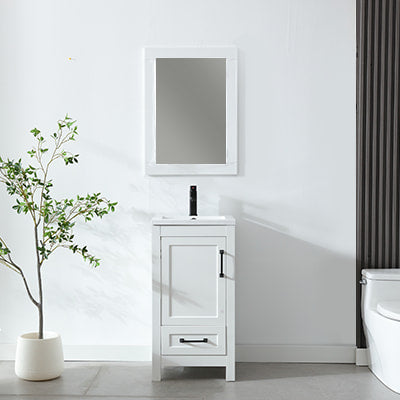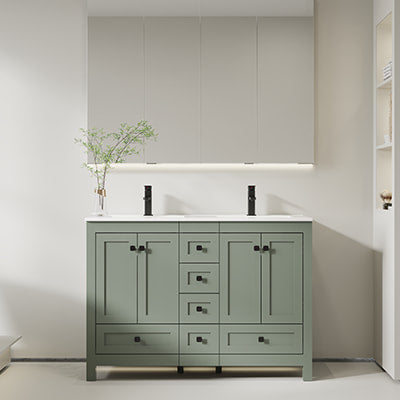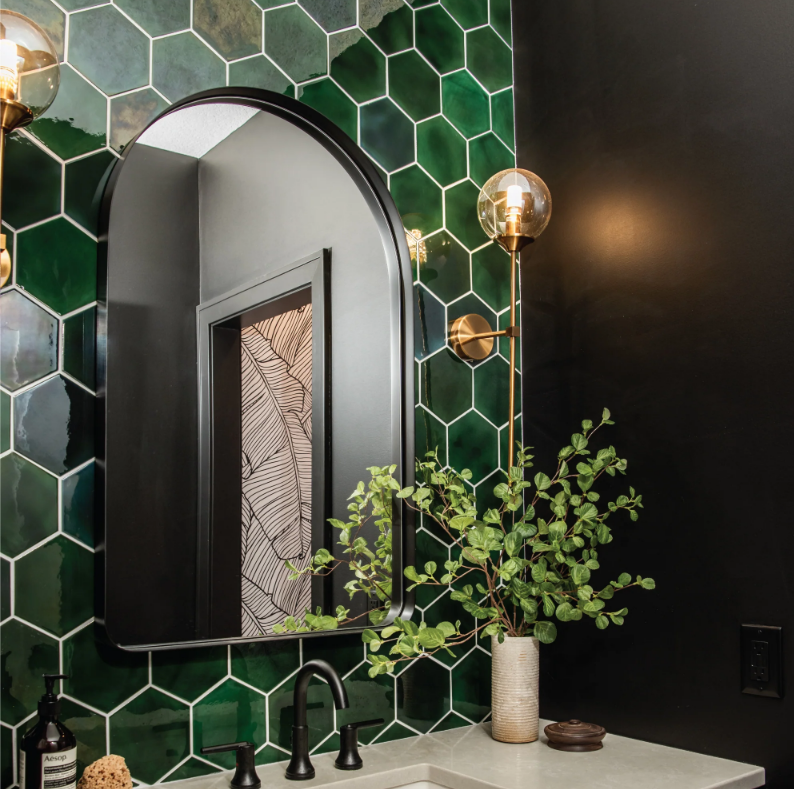Have you ever noticed that you or your family members seem to spend more and more time in the bathroom? This tiny space, at some point unbeknownst to us, has ceased to be merely a place for addressing physiological needs and has become a haven that makes people reluctant to leave. When we close the door and turn on the faucet, the world is temporarily shut out. Behind this phenomenon lie the complex emotional needs and life conditions of modern people. In this space surrounded by tiles and steam, we not only clean our bodies but also cleanse our souls, seeking the rare tranquility and opportunities for self-dialogue in daily life.
1. The Extension and Evolution of Physiological Needs

The most basic functions of a bathroom are cleaning and excretion. However, with the improvement of living standards, these basic activities have evolved into more elaborate rituals. From a simple five-minute shower to a half-hour immersive experience, from basic cleaning to a full set of care including exfoliation, massage, and deep cleansing, the demands of modern people on bathroom functions have undergone a qualitative leap. The booming development of the personal care industry has further driven this change. Various bathing products, skincare procedures, and hair care tools have turned simple cleaning into a complex self-care ritual.
Modern bathroom equipment also makes it possible to extend the stay. Whirlpool bathtubs can relieve muscle tension, steam showers help open pores and relax the body and mind, and heated floors make the morning washing experience more comfortable on cold days. These facilities not only enhance functionality and comfort but also create a sensory experience that makes people unwilling to end this period in a hurry. Statistics show that the average time modern people spend in the bathroom every day has increased by nearly 40% compared with 20 years ago, which fully illustrates the elevated status of the bathroom in our daily lives.
2. A Psychological Sanctuary and Emotional Haven

In today's fast-paced world, the bathroom may be the only place in the home where one can legitimately be alone. When a person walks into the bathroom and closes the door, it is a universally understood signal—I need some undisturbed time. In this space, we can temporarily escape the expectations and demands of the outside world and gain rare private moments. Psychologists point out that such regular "mini-retreats" are crucial for maintaining mental health, as they help us restore inner balance and deal with the stress and emotions accumulated in daily life.
Here, we temporarily lay down our social roles and responsibilities. Whether it's work pressure or family expectations, they are all kept outside the door. The bathroom door becomes a physical and psychological boundary, separating public life from private space. At this moment, we don't need to play the roles of employees, parents, partners, or children; we just need to be ourselves. This temporary "suspension of roles" allows us to reconnect with our inner needs and feelings, serving as an important buffer mechanism in the high-pressure life of modern society.
3. An Incubator of Creativity and a Laboratory of Thinking
 How many brilliant ideas are generated while showering? This is no coincidence. Studies have shown that when we engage in repetitive activities that don't require much thinking (such as showering or walking), the brain enters a relaxed and open state called the "default mode network." In this state, thinking can freely associate, connecting concepts that wouldn't normally be linked, thereby generating creative breakthroughs. Many scientists, artists, and entrepreneurs deliberately use bathroom time to break through thinking patterns and solve difficult problems.
How many brilliant ideas are generated while showering? This is no coincidence. Studies have shown that when we engage in repetitive activities that don't require much thinking (such as showering or walking), the brain enters a relaxed and open state called the "default mode network." In this state, thinking can freely associate, connecting concepts that wouldn't normally be linked, thereby generating creative breakthroughs. Many scientists, artists, and entrepreneurs deliberately use bathroom time to break through thinking patterns and solve difficult problems.
The sense of relaxation brought by a warm shower, coupled with the shielding effect of white noise, creates an ideal flow state environment. The sound of water masks external distractions, the warm water promotes blood circulation and relaxes muscles, while also psychologically creating a sense of security similar to returning to the mother's womb. This environment is particularly conducive to divergent thinking, allowing the brain to freely explore various possibilities and connections. Innovative companies like Google have even specially designed "blue rooms" to simulate this relaxed and creative mental state, proving the special value of the bathroom environment for innovative thinking.
4. The Ultimate Sanctuary in the Digital Age

In today's world where smartphones are ubiquitous, the bathroom has become one of the few places where one can reasonably refuse digital distractions. Although some people do take their phones into the bathroom, for many, bathroom time is a rare opportunity to disconnect. In this highly interconnected world, we rarely get a chance to be truly alone without interruption. The bathroom has become the last bastion of digital detox, allowing us to temporarily escape the pressure of being always online.
No notifications, no social media updates, no email alerts—this digital detox, though brief, is extremely precious. Neuroscientific research shows that such regular digital breaks are crucial for restoring brain function. It gives us the opportunity to be with ourselves rather than connecting with others through screens. Many people unconsciously extend their bathroom time precisely because it's the only moment when they can legitimately not respond immediately to others' expectations. This temporary disconnection not only reduces information overload but also helps us regain control of our attention.
5. The Profound Influence of Cultural and Social Factors

Different cultures have interesting perspectives on bathroom time. In some cultures, long baths are seen as a luxury or self-indulgence; while in others (such as Japan), bathing is a profound tradition and daily ritual with almost meditative significance. The Japanese regard bathing as a ritual to purify the body and soul, and have even developed a unique "bath culture," including public bathhouses, hot spring culture, and elaborate bathing rituals. These cultural differences profoundly affect people's views and usage patterns of bathroom time.
Social pressure also plays a role. In societies with a strong sense of image consciousness, personal appearance has become extremely important, leading people to spend more time grooming themselves. From carefully styled hair to perfect makeup, these all take time, and the bathroom is a natural place for these rituals. The era of social media has further exacerbated this phenomenon, as people feel the need to always maintain their best appearance, thereby increasing the time spent preparing in the bathroom. At the same time, the bathroom has also become a refuge for some people to cope with social anxiety—during social events, many people frequently retreat to the bathroom to get a brief respite and a chance to readjust.
6. The Hidden Worries of Overstaying and the Way to Balance

Of course, spending too much time in the bathroom may also point to some problems. Sometimes, it's an escape behavior—escaping family conflicts, work pressure, or emotional issues. When a person stays in the bathroom unusually long, it may be a sign of mental health problems. Psychologists point out that excessive use of the bathroom as a sanctuary may indicate that an individual has difficulty coping with life's pressures, or is experiencing anxiety, depression, or other issues.
In addition, in shared living spaces, excessively long bathroom time may cause family conflicts, especially when multiple people need to use it during morning rush hours. This situation requires communication and understanding among family members to find solutions that balance the needs of all parties. Setting reasonable time limits, establishing usage schedules, or creating other private spaces in the home can all help reduce tensions related to bathroom use. It's important to recognize that while bathroom time is important for self-care, it also needs to be balanced with family and social responsibilities.
Conclusion: A Private Sanctuary for Finding Balance
The extension of bathroom time is a subtle indicator of modern life, reflecting our need for privacy, self-care, and psychological space. In this always-connected and overly demanding world, that small space provides a rare opportunity for solitude, allowing us to recharge and reconnect with ourselves. It is no longer merely a functional space but has become an important place for self-care and personal rituals in our daily lives.
Perhaps next time you find yourself or a family member staying in the bathroom a bit too long, you can be more understanding—they may not be wasting time, but seeking the hard-to-find tranquility and balance in life. In this era full of demands, we all need such a space to breathe, think, and simply be. The bathroom, this most private space, ultimately becomes the place where we meet our truest selves. Here, we not only clean our bodies but also purify our souls, preparing to face the challenges of the outside world.





